- Home
- Shari J. Ryan
Fall to Pieces: A story about addiction and love Page 3
Fall to Pieces: A story about addiction and love Read online
Page 3
August pulls the note back out of her bag and crumples it in her hand. “You stupid son of a bitch,” she shouts into the wind.
I keep a safe distance as I follow behind her, past the lit-up restaurants and other bars that are packed with the after-work crowds. August doesn’t stop at any of the other bars; she keeps on walking toward the lake.
I know I should have stopped following her six blocks ago, but something isn’t right, and my conscience won’t let me sleep tonight unless I know she isn’t using the bridge ahead of us as a recourse for her troubles.
My feet tire as we reach the bridge, the ache in my back is throwing off my balance and putting pressure on my tired legs.
To my relief, August takes a seat on the weathered bench, over the dark water, reflecting nothing but the glow from the stars.
“I know you’re following me. I’m not going to jump off this bridge, and I’d appreciate it if I didn’t have to call the sheriff because some creep is stalking me. Please, go away,” she calls out, but doesn’t turn to look at me.
Chapter Four
August
Dear A**hole,
My therapist, the one I need because of you, told me to write you letters. It should help with the pain, she said.
I’ve decided to try it, but every time I sit down to write you a damn letter, anger rushes through me as if someone removed the cork that keeps the bubbles inside a shaken bottle of champagne.
Whatever though, it’s not like you’re going to be reading this anyway, right? Right, Keegan? It’s because you’re dead.
I bet you don’t know what it feels like to be so angry at a dead person that you wish they weren’t dead so you could have the last word.
I don’t get to have the last word. I didn’t get to have any say in your choice, but here I am, living with your decision—your stupid, selfish decision.
What right do you have killing yourself in our bathroom, a room I can’t exactly avoid? What made you think swallowing a bunch of pills after downing whiskey bottles was the way to go? Why not just skip the whiskey, hang onto your damn chip, and swallow the pills? At least that way, you could have died with some dignity… not much, but a little more.
Now, I know how weak you were. You could have had it all, Keegan, but no, you took it all with you.
Well, screw you. Screw this letter, and if you weren't already dead, I’d wish you were.
Love ... no, I don’t love anything about you. Un-love,
Auggie
P.S. I hate you.
* * *
I take the paper, crumple it back up and throw it into the lake. I release the letter and my damn emotions, but I don’t feel any better. I’m just angrier.
With a huff of exasperation, I turn around, looking for the creep who followed me down here, but I’m thankful to see he’s no longer lurking. It may seem like I’m acting dumb to anyone around me, but everyone mourns in their own way, and no one has the right to tell me how I should cope.
I’m the one who must go home to an empty apartment that still smells like my boyfriend a week after he died and I’m the one who has to lay down in the bed we shared, wondering how long I lived with him as a caretaker instead of the woman he loved. I didn’t lie about driving because I live too close to that damn bar to bother starting my car. It’s a half mile at most ... a location Keegan must have had in mind when suggesting the location of our apartment.
It’s funny how everything is so clear to me now. They say love is blind, but I must have been blind and deaf. With the sign to our complex in view, I check my phone to see the time, surprised it’s already nine o’clock. I like to be in bed by nine since getting up at six-thirty is painful no matter how early I turn in, but tonight I’m not feeling tired in the least.
This is what Keegan did, but he would come home much later. He would walk through this door, heavy footed with his clunky boots that were usually untied around the ankle. His hair would be a mess, and not in a tousled sexy way, but the way that showed he’d run his fingers through his hair so many times that it became a greasy, tangled mess. He would be covered with grass stains, and have dirt caked under his fingernails. Every night, I told him he needed to shower before climbing into our clean sheets but I’m not sure how often he listened because I was usually asleep before he would fall into the bed. I was used to the thumping noise and being bounced around on the springy mattress that died along with our relationship.
In between the time he came home and climbed into bed, he’d visit the kitchen and grab a bottle of Maker’s Mark, which he kept stocked up until six months ago. He was good about not adding extra dishes to the sink, since he rarely ate at home. Instead, he’d head right for the bar.
I’ve always been a very understanding person. My mistake.
I walk into our kitchen and grab a hidden bottle I found a few months back. I placed it in the back of the drawer that held large serving utensils, knowing he’d never go into it. Sure enough, the bottle is where I left it, so I take it with me to bed.
I’ll do what he did.
I’ll drink myself to sleep.
I’ll drink until the pain goes away.
Chapter Five
Chance
Why whiskey? She didn’t seem too affected by the several drinks she had—except for her attitude, but who knows what the girl is like when she’s sober. Worrying about her won’t do me much good, but I hope I don’t wake up to a news report about some chick jumping off the bridge into Lady Bird Lake.
While driving home, I debated if I should go back and check on her, but I don’t think it would have been a good idea after she called me a creep. I’m sure she’d call the sheriff on me.
After strolling through the front door, I hit the light switch, kick off my boots, and head for the kitchen to grab a drink. Within three seconds, one of the two hanging bulbs blows, casting a dull orange glow on the rest of the room. It’s just a little reminder that this house is about seventy years old and hasn’t seen an update. After working around peoples’ houses all day, coming home to work on mine is the last thing I want to do. Plus, I don’t care if the place looks old. I’m here and awake for a few hours a day, sleep six or seven hours in a dark room, and leave before the sun rises.
My dingy white fridge is the only thing I have my eyes set on right now. The door sticks when I yank it open, sounding like I’m pulling a piece of masking tape off a wall. It prompts me to grab a wad of paper towels for a quick wipe-down of whatever exploded in the antique, grab a Bud Light after the clean up and plop down at the oak table my parents handed down to me a few years back when they were upgrading their kitchen furniture. The table is sticky with its shellac texture I don’t like. I often scrape my fingernails across it when I’m not paying attention, leaving grooves and white marks, but the table is a perfect piece of furniture for holding up my bills and beer bottles.
I take a swig of the beer and notice a yellow envelope amongst the pile of bills I plan to tend to this weekend. I pull it out and turn it over to see the return address.
The Foster Child Foundation is seeking donations.
I slide my thumb under the closed flap and tear the seam apart to pull out the contents; an envelope, a letter, and a sheet of complimentary return address labels. I read the note every month, and it tugs at my heartstrings, giving me a good reason to appreciate my past.
The checkbook is resting across from me, just behind the heap of bills, and I lean forward to rip off the top check, snatching a pen from the coffee mug that holds my writing utensils. I make the check out to the foundation for a thousand dollars, fill out the form tucked under the envelope’s flap, and put it together so I can drop it in the mail tomorrow.
After another long guzzle from my beer, my phone rings in my pocket. I slide it out and see Pops’ name on display. I squint, checking out the time on the stove, and wonder why they’re calling so late. I get nervous with calls from them after nine.
“Hey, what’s going on?” I answer.
“Cha
nce?” he questions.
“Yeah, Pops, it’s me. What’s up? Everything okay?”
“Yeah, yeah, everything is fine. Do you know how to get to the Hulu application on the TV? I’ve been struggling for two hours now, and all I see is snow.”
I surrender a heavy breath, relieved to hear there isn't anything is wrong with them.
“Hit the number 3, then hit the input button twice.”
There’s silence for a long minute. “I raised a genius. Thanks, son.”
“Anytime, Pops.”
“Hear any news today?”
I know what he’s asking about, the same news he’s been inquiring about for years. “Nope, nothing today. I guarantee you and Ma will know as soon as I hear something.” If I ever hear anything.
“I know, Son. I pray for you every night. I just want you to know that.”
“Love ya, Pops.”
“You too, son.”
I end the call and drop my phone to the table before running my fingers through my hair. It has been a long few years, but I’m not giving up hope. It’ll happen. It must.
In the meantime, I need to stay busy and keep on working to put money aside.
Before I realize it, my bottle is empty, and it’s my signal to hit the sack. I aim the glass toward the trash bin and toss it five feet into the air, listening for the swish as it hits the contents inside. No one else knows how long I’ve gone without missing a shot. It’s a good thing, or I’d be sweeping up glass all the time.
I hit the light switch and immediately slap it back up as I hear a thud against the wooden storm door. It’s been a couple of weeks since there’s been a knock this late at night. I was starting to think the unexpected visits were over.
A groan gurgles through my throat as I step into the foyer and stare straight at the front door as if neon lights are screaming the word “stop.” I yank at my belt, adjust my pants, and clear my throat—a nervous habit.
I open the door, spotting my next-door neighbor, Didi Jones. She’s one of the two women—the thirty-something-year-old-one who uses her daddy’s money to pay the rent for her duplex every month.
Didi stands before me with her blonde curls cascading halfway down her back, red-painted lips that match her nails, a revealing black blouse leaving too little to the imagination, and silver skintight pants.
She’s a pretty woman with her ultra-white smile and lashes so long they cast shadows on her cheeks. Didi insists she’s worried about me living all alone in my house. She thinks I can’t take care of myself without some assistance—the typical female type I tend to attract. If I thought she was concerned about my well-being that would be one thing, but I know she has more on her mind when she comes over.
“Evenin’, miss Didi. What can I do ya for?”
Didi offers her usual crooked smile and lifts a cellophane-wrapped plate in the air. “I made fresh bread tonight,” she says, handing over the plate. “I thought you might like some too.”
“That’s very kind of you,” I say. “Thank you for thinking of me.”
“I always think of you, silly.” She flaps her hand at me as if I’m a passing fly.
The only thing I can appreciate about this neighborly relationship is that she’s never bold enough to invite herself inside or ask me over to her place. However, I have a strange feeling she might be watching me through my windows on the nights I forget to pull the blinds. Hopefully, it’s my head playing tricks on me when I hear twigs snapping outside the thin walls.
The scent of bread makes me feel like I haven’t eaten anything all day, but my appetite dwindles when I recall she only bakes when she’s had a tough day. “Is everything okay with you?” We are neighbors, so I try to do the decent thing by being attentive, but if I’m not careful, my next words could earn me a heart-to-heart conversation on my couch for the next hour.
“Oh, sure, I’m fine. It’s been a long week, but we all have those, right?”
“Sure do,” I tell her.
“Well, it’s late, and I have to help Daddy out at the office tomorrow morning for a bit, so I guess I’ll see you around.”
“Thank you for the bread, Didi. I appreciate it.”
“I know you don’t cook, so—it’s my pleasure. Goodnight, Chancey.”
Once I close the door, a sigh of relief escapes my throat. My twenty-year-old mind would have made a move on Didi by now, but the thirty-year-old I am is looking for something different.
Different as in, a life many people might not understand.
Chapter Six
August
I should have known a headache would follow the actions from last night. The burning sun sneaking in through my blinds highlights the pain. I open the rickety drawer to my nightstand and pull out a bottle of aspirin. The irony of relieving physical pain from what I’m using to alleviate emotional pain proves this mindless cycle of destruction.
I swallow the two pills, choking them down through the dry coating on my tongue. I throw the bed sheets onto the ground, throw Keegan’s pillow to the other side of the room, and grab the jeans I wore yesterday. I pull them on and find myself standing in front of my mirror.
The black circles beneath my eyes are overshadowing my complexion. I’m not sure I can hide the truth with a simple concealer. I’ll need to invest a little more money into a better brand, with full coverage, to hide this kind of truth. My eyelids look puffy. I suppose ice could help with that, but I’m not sure that all the make-up in the world will cover my coarse lips, pasty skin, and the worry lines extending from the corners of my eyes. I look horrendous.
Pain ages us. The therapist said this too.
I grab a clean shirt from my closet, noting I only have a few clean ones left before laundry becomes necessary. I slip on the flannel button-down and realize the buttons are tugging along my midsection. I need to stop stress eating before having to go shopping for new clothes in the next size up.
I unbutton the top buttons and let the shirt hang open over the black camisole I wore to bed. I slip on my flats and head to the kitchen for my instant liquid breakfast before rushing out the door, knowing I’ll be late if I take any longer.
Once I close myself inside my Jeep, I thrash my head back against the headrest. “All I have is this damn headache, Keegan. That’s it.”
I can’t even turn up the radio this morning. It’ll just make the throbbing pain in my head worse. The home I work at is about twenty minutes from my apartment, which is a lot further than it was a couple of years ago before we relocated. It was just two miles away from my apartment when I started there, but I’d follow those kids out of the state at this point.
I don’t love the new area, or the house, but we do what we can do with the state’s money. An old farmhouse with rickety floors and windows that invite drafts in on chilly nights is the place. The whole house could use a remodel, but I’m not sure the kids notice, considering where they came from before ending up here.
The driveway is large enough to fit four cars; mine, the childcare manager, an assistant, and a space for the occasional parent showing up for a visit.
As I unlock the front door, Leena’s voice bellows from down the hall. “Miss Taylor is back today!”
Miss Taylor is back from a week of bereavement leave, and we hope she’s stable enough to perform her job correctly. I’m sure that’s what Leena is thinking. My situation is too complicated to explain, but I put on a good act. I can be present and hide what’s going on inside my head.
“Can everyone say good morning to Miss Taylor?” Leena says as she continues rounding up the kiddos.
“Good morning, Miss Taylor,” they say in unison.
The youngest child here is Zooey. She just turned four and has little understanding of the rules here. It doesn’t bother me. However, Leena is determined to instill the house guidelines as she continues to grow. Despite my personal feelings, I must comply due to state regulations in a children’s group home. Zooey doesn’t understand the “no touching” ru
le, so she runs up to me each morning and wraps her little arms around my leg, shrieking, “Hi, Miss Auggie.”
This morning, after being gone for a week, Zooey doesn’t run up to me. She raises her hand and waves, bashfully. I wish I could tell her to break the rules because I need her tiny embrace this morning, but it would be wrong.
Leena smiles at the children with pride and places a hand on my back. “Boys and girls, Miss Willa is in the kitchen fixing your breakfast. Why don’t you all have a seat at the table, and I’ll be there in a minute? Wynne, could you make sure they all make it in there?”
Wynne is our oldest girl. She doesn’t speak often, but she’s very mature and responsible. With a quick agreeable nod, Wynne ushers the others into the kitchen.
“How are you doing?” Leena asks me, her lips arched to one corner, and her brows sewn together with concern. Leena doesn’t show much emotion, which is par for the course of this job, but I know she’s human inside and has a big heart. A person must have a big heart to do what we do.
“I’m fine,” I tell her, forcing my lips to curl upward in a forced smile.
“You’re lying. We’ve known each other for quite a while, and though we’re good at hiding our pain, I can see it in your eyes, August.”
I inhale through my nose and walk toward my office, a side-room adjacent to the living room. It’s the place where I meet privately with caseworkers, parents, and officials. It’s also where I have discussions with the kids, keeping track of their thoughts and feelings.
The last time I was in this office, my life was okay, or at least as fine as it could be. Now, everything is different.
“You knew it was coming, didn’t you?” she asks, closing us into my office.
“I knew it could happen someday, but no, I wasn’t aware that last week was his time.”
“Are you talking to someone?” Leena asks.

 Fall to Pieces: A story about addiction and love
Fall to Pieces: A story about addiction and love Bourbon Nights (The Barrel House Series Book 3)
Bourbon Nights (The Barrel House Series Book 3) Bourbon on the Rocks (The Barrel House Series Book 2)
Bourbon on the Rocks (The Barrel House Series Book 2) A Missing Heart
A Missing Heart When Fully Fused
When Fully Fused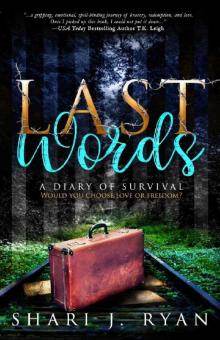 Last Words: A Diary of Survival
Last Words: A Diary of Survival Passion, Vows & Babies_Truth of a Dream
Passion, Vows & Babies_Truth of a Dream Man Flu
Man Flu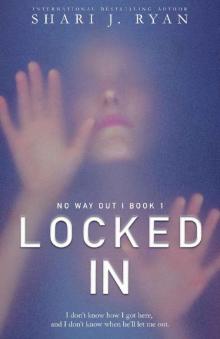 Locked In (No Way Out Series Book 1)
Locked In (No Way Out Series Book 1)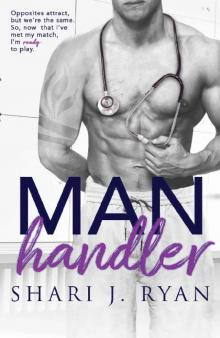 Man Handler (Man Cave - A Standalone Collection Book 3)
Man Handler (Man Cave - A Standalone Collection Book 3) You're It
You're It Red Nights
Red Nights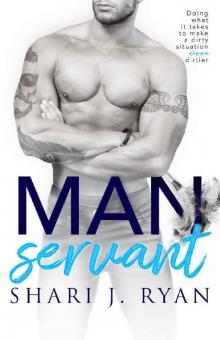 Manservant
Manservant Truth of a Dream_Passion, Vows & Babies
Truth of a Dream_Passion, Vows & Babies Passion, Vows & Babies: Truth of a Dream (Kindle Worlds Novella)
Passion, Vows & Babies: Truth of a Dream (Kindle Worlds Novella)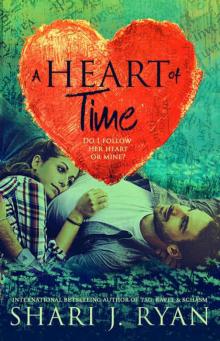 A Heart of Time
A Heart of Time The Barrel House Series: Boxed Set : Complete Series, Books 1-4
The Barrel House Series: Boxed Set : Complete Series, Books 1-4 Man Buns
Man Buns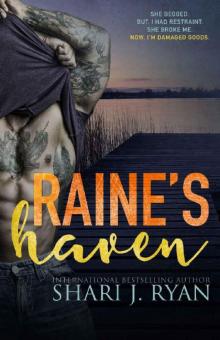 Raine's Haven
Raine's Haven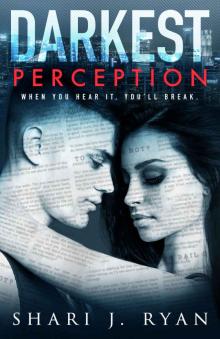 Darkest Perception_A Dark and Mind-Blowing Steamy Romance
Darkest Perception_A Dark and Mind-Blowing Steamy Romance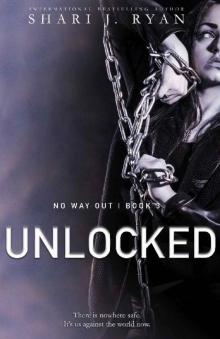 Unlocked (No Way Out Series Book 3)
Unlocked (No Way Out Series Book 3)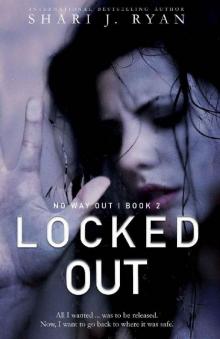 Locked Out (No Way Out Series Book 2)
Locked Out (No Way Out Series Book 2)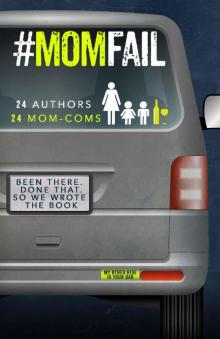 #MomFail: 24 Authors & 24 Mom-Coms
#MomFail: 24 Authors & 24 Mom-Coms TAG
TAG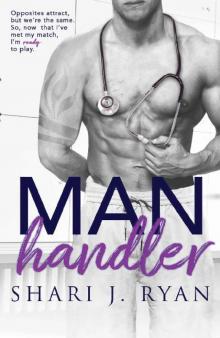 Man Handler
Man Handler